
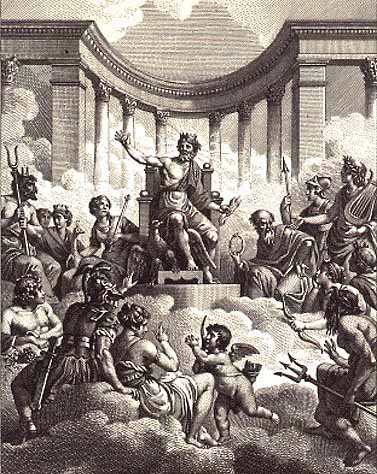


In Greek mythology, the Twelve Olympians, also known as the Dodekatheo were the principal deities of the Greek pantheon, residing atop a mythical Mount Olympus. The Olympians gained their supremacy in a war of gods in which Zeus led his siblings to victory over the Titans.
The concept of the "Twelve Gods" is older than any extant Greek or Roman sources, and is likely of Anatolian origin. The gods meet in council in the Homeric epics, but the first ancient reference to religious ceremonies for the Olympians collectively is found in the Homeric Hymn to Hermes. The Greek cult of the Twelve Olympians can be traced to 6th-century BC Athens and probably has no precedent in the Mycenaean period. The altar to the Twelve Olympians at Athens is usually dated to the archonship of the younger Pesistratos, in 522/521 BC.
Hades, known in the Eleusinian tradition as Pluto, was not usually included among the Olympians because his realm was the underworld. Plato connected the Twelve Olympians with the twelve months, and implies that he considered Pluto one of the twelve in proposing that the final month be devoted to him and the spirits of the dead. In Phaedrus Plato aligns the Twelve with the Zodiac and would exclude Hestia from their rank.
In ancient Greek religion, the "Olympian Gods" and the "Cults of Twelve Gods" were often relatively distinct concepts. The Dodekatheon of Herodotus included Zeus, Hera, Poseidon, Hermes, Athena, Apollo, Alpheus, Cronus, Rhea and the Charites. Herodotus also mentions that Heracles was included as one of the Twelve by some. At Kos, Heracles and Dionysus are added to the Twelve, and Ares and Hephaestus are not. For Pindar, the Bibliotheca, and Herodorus, Heracles is not one of the Twelve Gods, but the one who established their cult. Lucian (2nd century AD) includes Heracles and Asclepius as members of the Twelve, without explaining which two had to give way for them.
Hebe, Helios, Eros, Selene and Persephone are other important gods and goddesses who are sometimes included in a group of twelve. Eros is often depicted alongside the other twelve, especially his mother Aphrodite, but not usually counted in their number. The Roman poet Ennius gives the Roman equivalents as six male-female complements, preserving the place of Vesta (Greek Hestia), who played a crucial role in Roman religion as a state goddess maintained by the Vestals. There was some variation as to which deities were included, but the canonical twelve as commonly portrayed in art and poetry were:
Zeus
Hera
Poseidon
Dionysus
Apollo
Artemis
Hermes
Athena
Ares
Aphrodite
Hephaestus
Demeter
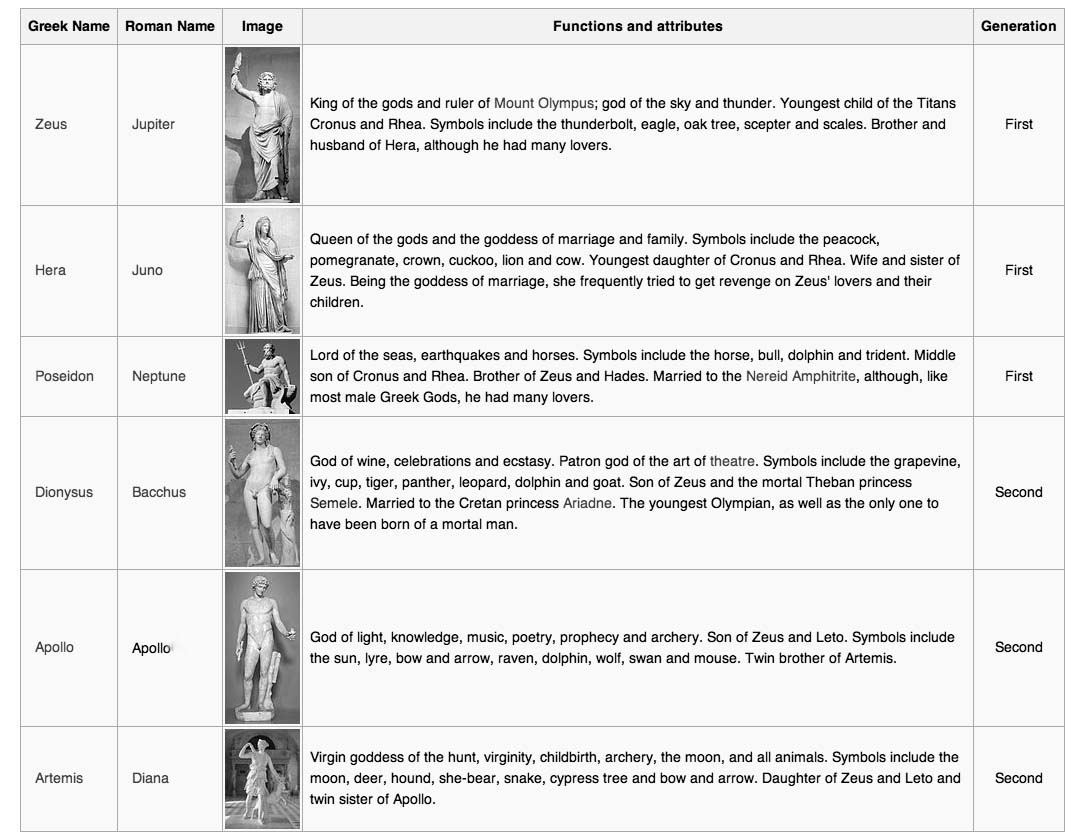
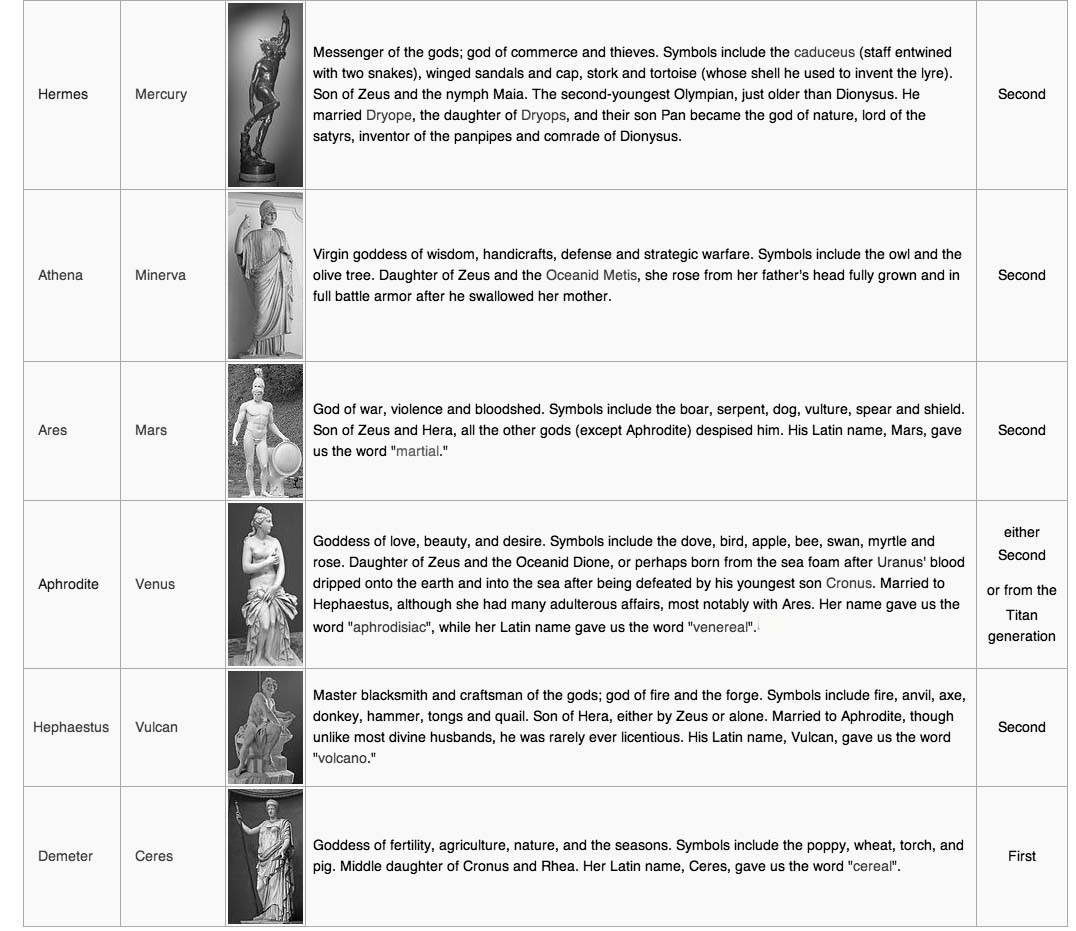
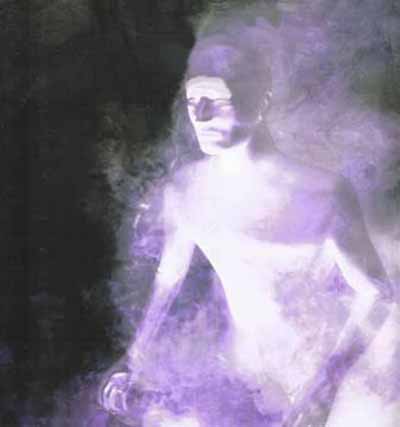
Creation began with Chaos (The Void)
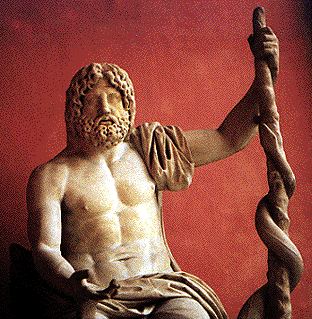
Other Greek Gods and Goddesses
Asclepius
Dione
Erinyes - Furies
Eris - Strife
Fates - Moirae
Graces
Hebe
Muses
Nemesis
Nymphs
Pan
Persephone
Thanatos
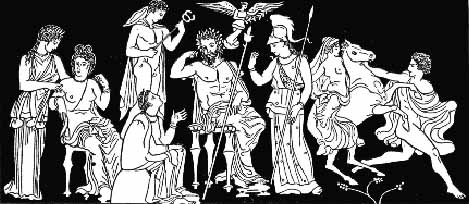
The Titans